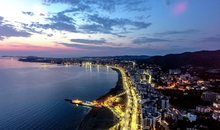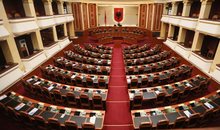
 Flash News
Flash News
EU Integrity for Sale: Tirana Edition
Two people are arrested in Vlora, they are caught with narcotics divided into doses ready for sale
Martin's murder trial, Luis Meçe's father clashes with the prosecutor: You are sleeping with the file
Accident in Astir/ Car drags a person across the white lines
Celibashi: The CEC platform fell victim to several cyberattacks during the elections
EU Integrity for Sale: Tirana Edition
Evropa përgëzoi një autokrat të kontestuar, jo një demokraci. Ose e verbër, ose e komprometuar, ose bashkëpunëtore. Brukseli zgjodhi autokracinë ballkanike në vend të integritetit. Çmimi? Besueshmëria e vet.
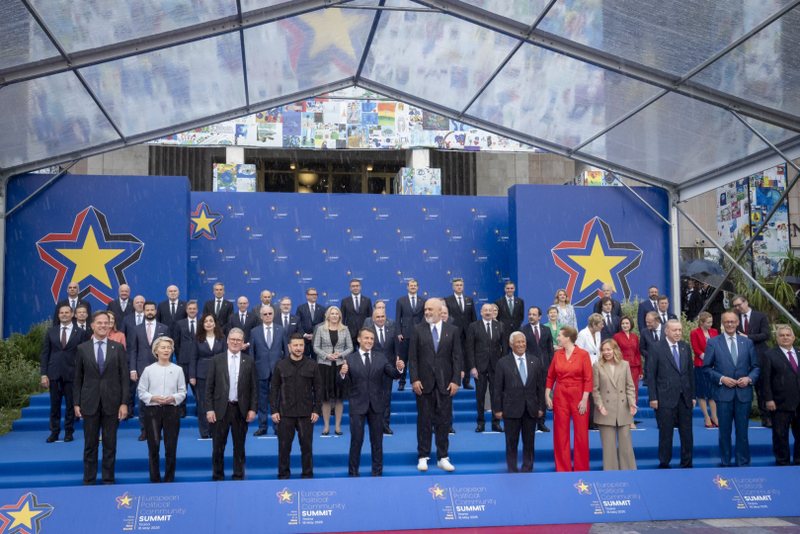
On May 1, I crossed the border into Albania under a sky that gave no sign of the political storm looming over the horizon. Tirana, its silhouette hovering somewhere between post-socialist entropy and capitalist splendor, was throbbing with pre-election anxiety. A capital with a trained order; a republic in managed chaos. Beneath the freshly painted facades and flowery decorations of public parks, the cracks in Albania’s democratic theater were beginning to show. On May 11, the curtain rose not on an act of democratic triumph but on a polished performance, carefully orchestrated and unquestioned by those who were supposed to see beyond the illusion.
Edi Rama, a senior statesman turned political artist, secured what was officially called a “historic” fourth term in power. With 52 percent of the vote and 83 seats in the 140-seat parliament, the Socialist Party declared victory amid accusations of vote-buying, abuse of public office, and systematic intimidation. The opposition cried foul; international observers expressed concern. SPAK confirmed it was investigating 39 cases of electoral irregularities. The European Commission called the process “deeply polarized” and highlighted the blatant lack of a level playing field. And yet, while the ballots were still warm, the parade of congratulations from Europe had begun.
It was as if no one had seen anything. Or maybe they had seen enough… to choose indifference.
On May 17, just a week after the elections, European leaders descended on Tirana for the European Political Community Summit. With Ukraine-Russia peace talks on the horizon and EU enlargement supposedly on the agenda, one would have expected a brief pause in protocol — a moment of principle. But instead, the summit degenerated into a spectacle of handshakes and empty phrases, with Albania’s democratic emergency elegantly swept under the white carpets of the EPC tent.
Emmanuel Macron, Keir Starmer, Ursula von der Leyen and others competed for space in a capital where air traffic had to be diverted for the occasion. But none took the time to publicly raise questions about the legitimacy of a contested election process.
When does diplomacy become complicity?
The symbolism of this summit, held in a country still under investigation for electoral fraud, was undeniable. That the most powerful actors in the European Union offered tacit support for Rama’s fourth term speaks to more than a strategic oversight. It shows a willingness, perhaps even a desire, to embrace a Balkan autocrat whose country, far from being an aspirant for EU values, increasingly resembles a patron state with criminal influence.
Rama has been praised in Brussels and Washington for "regional stability," for welcoming Afghan refugees, and for accepting migrants from Italy. In return, he has been granted impunity.
Is this the price of loyalty to the West? If so, the West should be afraid of the cost.
In reality, what Edi Rama offers the European Union is not stability, but a false calm — a sustained instability — a reality where corruption is predictable, institutions are entrenched, and the illusion of governance is more comfortable than the truth.
It is a familiar pattern.
He is perfect in Budapest, where Viktor Orbán continues to govern a semi-authoritarian state under the guise of EU membership.
Another one is being formed in Bucharest.
Serbia, meanwhile, is a vassal of the Kremlin, whose nationalism is paradoxically financed by European funds.
How did we get here?
The answer lies in the EU's addiction to its enlargement myth. Brussels insists that enlargement brings influence, that by bringing the Balkans into its orbit, it will reduce Russian and Chinese influence.
But what is happening is the opposite: a discounting of European values in the name of short-term geopolitical gains.
What is democracy, except a flag to be waved at summits, while governments that are hostile to transparency, opposition, and electoral integrity itself are invited into the halls of continental respectability?
Rama, a man once adored for his bohemian charm and artistic sensibility, now leads an administration that is credibly accused of using state institutions to surveil journalists, imprison whistleblowers, and sell off national assets to shady foreign actors, with alarming regularity.
The incinerator scandal — a disgusting saga of environmental abuse, misappropriation of funds, and judicial compromise — remains unresolved, while its main architects are either behind bars or on the run.
The fact that this man, this government, this result, was not only accepted but enthusiastically greeted by the leaders of Europe, demands an answer.
Are we seeing a European Union that purifies its values in exchange for regional obedience?
Or are we facing something darker: the tacit cooperation of a bloc that is willing to tolerate Balkan autocracy, as long as the trains run and the migrants stay away?
There is something brutally wrong with the speed and enthusiasm with which EU leaders rushed to Tirana after the elections.
Under normal circumstances, a summit held in this context would include at least symbolic language for accountability, calls for electoral transparency, support for investigative journalism, and concern about migration caused by state collapse.
But not this time. Not in Albania.
Instead, we saw Rama embraced as a family member — the prodigal son returned with open doors, open pockets, and a closed media landscape.
The visual alone was shocking.
Perhaps the EU is not sleepwalking, but it is trading in its sleep — accepting Albania as an undeclared buffer state, a place where European financial flows mingle with Balkan cartels, where yachts anchor on beaches cleared of environmental protections, and where an ascendant political elite owes more to oligarchy than ideology.
This is not the path to Brussels. This is the path to capture.
And in this dance of power and illusion, no one seems willing to ask the hard questions:
· Why does the EU continue to subsidize a Serbian government that is openly aligned with Moscow?
· Why is Orban's Hungary tolerated, which is in practice a station for Russia within the EU?
· Why is Romania, once the eastern anchor of NATO's credibility, flirting with the same illiberal architecture?
· Why is Edi Rama's Albania preparing for membership, while sinking deeper and deeper into deviation from democratic norms?
These questions require not only answers, but also accountability.
The Balkans today are less of an enigma and more of a powder keg. The European strategy of managed denial could prove disastrous.
What does this say about European resolve, when a prime minister accused of protecting figures linked to cartels, of appointing a stateless and unvetted foreigner to head state intelligence, and of destroying every pillar of media and judicial independence, is not only not criticized, but is placed center stage?
The integrity of the European project is being rewritten, not with declarations, but with silence.
And in that silence, Rama's Albania is becoming both a symbol and a warning.
For the leaders who paraded in Tirana on May 17 with smiles and press statements, there is only one simple question: Where is your backbone?
Preaching European values outside your borders and abandoning them at your doorstep is not diplomacy — it is hypocrisy.
You are not saving the Balkans. You are selling it. And history, when it comes to collecting the bills, will not forget your cooperation.
Latest news


Diaspora vote, Berisha: The envelopes were filled in Albania
2025-05-22 22:45:58
"Notify the DEA", Abilekaj: Internationals do not trust our institutions
2025-05-22 22:30:07
Operation "Bridge", journalist: SPAK was used as an election certifier
2025-05-22 22:07:35
Berisha: Rama won 28 mandates with criminal gangs
2025-05-22 21:58:18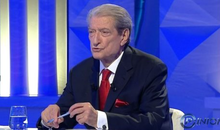

Fevziu clarification for Artan Lamen: He is still alive, but in a coma
2025-05-22 21:44:33
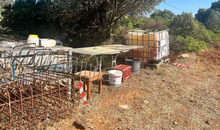

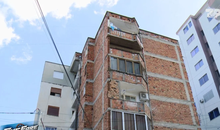
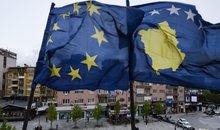
Which of the punitive measures has the EU started to remove from Kosovo?
2025-05-22 20:49:38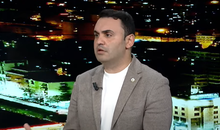
Këlliçi: SPAK acted after the elections, directed by Rama
2025-05-22 20:42:10



EU Integrity for Sale: Tirana Edition
2025-05-22 19:51:52
Plane crashes into homes in San Diego, California, several casualties reported
2025-05-22 19:49:43
May 11th Elections, Source: With the Bulgarian Train, he wins 300 thousand votes
2025-05-22 19:34:16
Citizens pay out of pocket for health funds at the lowest level since 2017
2025-05-22 19:21:43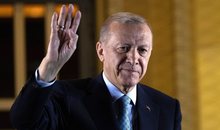
After three terms/ Erdogan: He will not run for president again
2025-05-22 19:08:35

SPAK seized two properties in 'Kodra e Diellit', Veliaj and Xoxa's lawyers react
2025-05-22 18:42:25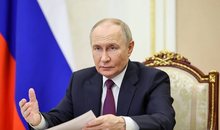

Symbolic or essential? The risk of women's representation in the new Parliament
2025-05-22 18:14:54

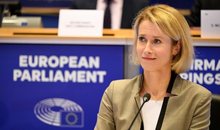
Kaja Kallas: We have started to lift the measures against Kosovo
2025-05-22 17:20:29


How to store aromatic herbs so they stay fresh for weeks
2025-05-22 16:50:07

Operation URA, a bridge that connected crime, power and the silence of SPAK!
2025-05-22 16:30:21
CIA Alert/ Shooting outside Langley headquarters, one injured
2025-05-22 16:20:53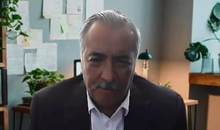






"Anti-drugs also hit the police", the US trusts citizens more than institutions
2025-05-22 15:24:51
Israel releases photos and identities of two embassy employees killed in US
2025-05-22 15:18:02
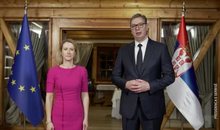
Kallas in Belgrade: Serbia must prove that it truly aims for EU membership
2025-05-22 14:56:45
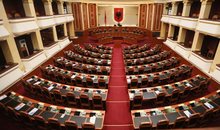
Parliament returns, MPs to hold plenary session on Thursday
2025-05-22 14:34:25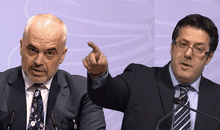
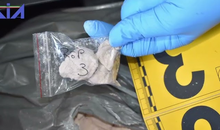
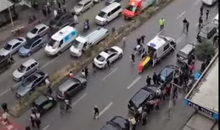
Accident in Astir/ Car drags a person across the white lines
2025-05-22 14:00:14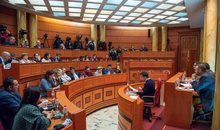
Wave of dismissals in Tirana Municipality, Ristani dismisses Veliaj's associates
2025-05-22 13:53:26
A month after Kashmir attacks, Indian PM rules out talks with Pakistan
2025-05-22 13:40:41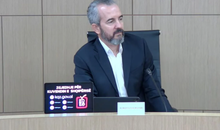

WHO report: Population is aging, social policies are needed
2025-05-22 13:23:12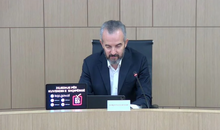


Patient dies during surgery, doctor prosecuted in Durrës
2025-05-22 12:54:55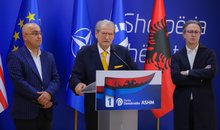

The “Black Eagle” dossier in Brussels exposes money laundering in Albania
2025-05-22 12:39:16
Berisha publishes video: Voter lists and ballots were found in the village bar
2025-05-22 12:30:29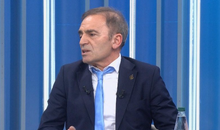


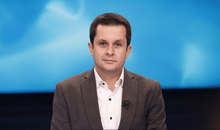

"5D" file, debate between the defendants' lawyers
2025-05-22 11:37:05

Hoxha: The Troplini received projects from the Prime Minister, appointed leaders
2025-05-22 11:16:59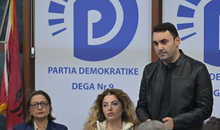
Këlliçi: The elections, a farce organized by the state and organized crime
2025-05-22 11:07:19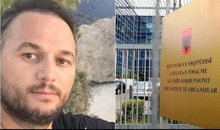
"Toyota Yaris", GJKKO sentences lawyer Radovan Çela to 4 years in prison
2025-05-22 10:56:47

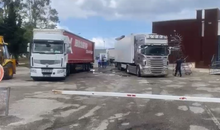
Anti-drug mega-operation, checks at the Port of Vlora
2025-05-22 10:13:54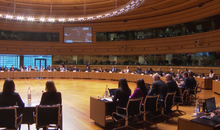



European Union's top diplomat Kallas visits Serbia and Kosovo
2025-05-22 09:36:58
Capital investments at lowest level since 2010
2025-05-22 09:27:12
Two Israeli Embassy staff members killed in Washington
2025-05-22 09:12:46
Pyjet tropikale pësuan shkatërrim rekord në vitin 2024
2025-05-22 09:04:20
Foreign exchange, May 22, 2025
2025-05-22 09:00:12

Accident on the Durrës-Tirana highway, vehicle overturns on the road
2025-05-22 08:31:24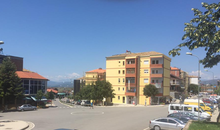

Horoscope, what do the stars have in store for you today?
2025-05-22 08:08:02
Showers, what are the temperatures expected to be like during the day?
2025-05-22 07:54:04
Morning Post/ In 2 lines: What mattered yesterday in Albania
2025-05-22 07:41:33


Germany extends the stay of its troops in Kosovo
2025-05-21 22:19:22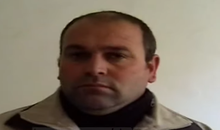
Journalist: Xhevdet Troplini alongside a politician
2025-05-21 22:00:07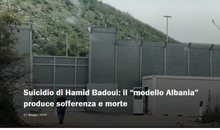
Amnesty International: Camps in Albania, a reflection of an inhumane system
2025-05-21 21:49:09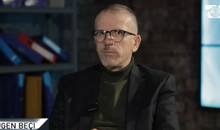
This is the first Albanian justice collaborator
2025-05-21 21:39:45
Bitcoin breaks historical record: Reaches $109,302
2025-05-21 21:36:06
Raped by colleague at the civil registry office, victim fired from job
2025-05-21 21:08:47
Hyn në fuqi vendimi i BSH/ Kredia për blerje banese kufizohet nga 1 korriku
2025-05-21 21:04:37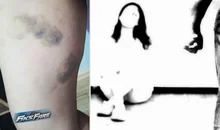
“Nga dhuna e burrit humba fëmijën”, nëna e dy të miturve kërkon drejtësi
2025-05-21 20:50:23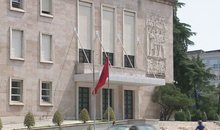
The government extends the stay of Ukrainians in Albania
2025-05-21 20:45:04
Social networks: Friend or foe of our personal relationships?
2025-05-21 20:22:33